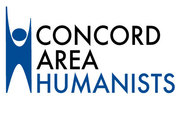Posted on December 10, 2013 by David
This morning, while lying in bed, I was thinking of writing a blog on Idolatry and Blasphemy. I then was later reading some of the blogs on the Concord Area Humanists site and discovered to my surprise a blog post on blasphemy by Ellery. This was a copy of an address he gave on Blasphemy Day, September 30, in 2012 at the Massachusetts Beirut Memorial. If I weren’t a Humanist, I would have sworn that this was a sign from the realms of the supernatural to “Go forth and declare”. (smile)
How do we define “idolatry”? Webster defines it as “the worship of a physical object as a god”, and also “immoderate attachment or devotion to something”. In the Ten Commandments, idolatry is treated as the making and creating of a “graven image” (carved, sculpted, engraved, etc.) This emphasizes that it is a thing made by man and given god-like characteristics. (And man made god in his own image?) Many Protestants accuse the Catholics of “worshipping” the statues of Mary and thus committing idolatry. And Catholics, in the “Catechism of the Catholic Church”, say that idolatry is “Idolatry not only refers to false pagan worship. Man commits idolatry whenever he honours and reveres a creature in place of God, whether this be gods, or demons (for example satanism), power, pleasure, race, ancestors, the state, money etc.” It is ironic that the Commandment against worshipping graven images was supposedly engraved in a stone tablet and carried by Moses down the mountain to the people of Israel as they were worshipping the golden calf idol that had just been made. Just as it is ironic that the 10 Commandments which many religious people want put up in courts and schools contain the Commandment not to worship any graven image such as the 10 Commandments.
I propose that the holy scriptures of any religion is really idolatry. Whether it be the Bible for Christians, the Koran for Muslims, or the Old Testament or Pentateuch for the Jews, these are the idols of the religious. While Christians say that they believe in a god, and worship a god, it is really the Bible they worship. If you take away the Bible, there is no god for them to believe in and worship. Without the Koran or the Old Testament, there is no god to worship. It is the “Word” or revelation of a god that is the basis of their faith and belief and that is what describes how they are to worship. The same may be said of the teaching of Mary Baker Eddy and other religious cults who revere a book as holy writ.
And yet that these “revelations” are man-made is evidenced by any type of critical analysis. And of course this also applies to all the “holy books” of Eastern religions as well. One doesn’t have to disprove the existence of a god, all one has to do is disprove these holy books as possessing god-like characteristics from some supernatural world.
When a religious group claims that a certain action is blasphemous, we see that the object of this blasphemy is really an object of their idolatry. If one idolizes the Bible, then they will see blasphemy when someone speaks against the Bible, or the god as represented in the Bible. The same with the Koran and Muhammad. Muslims do not like the appellation of Muhammadism as that indicates they worship Muhammad, which they deny. Yet the fact that they call certain acts blasphemous against the prophet Muhammad, shows that they deify this personage. The fact that Christians will call certain acts “blasphemous” when done regarding Christ or the Bible or the teachings in the Bible also show that these are the objects of their worship and deification.
And so blasphemy and idolatry go hand in hand. One cannot have blasphemy without a man/woman or a man-made object being first deified and worshipped as an idol.
As Humanists, we believe that nothing, no man-made object or even another man/woman, is higher than our own human nature. Nothing is considered divine as all is considered secular. So as a Humanist, I have no definition of blasphemy that is meaningful to me. And as a Humanist, any man or man-made object which is placed as being higher than one’s human nature in order to command or proscribe my beliefs and actions is idolatry. And I, for one, am not an idolater.


Add your comment